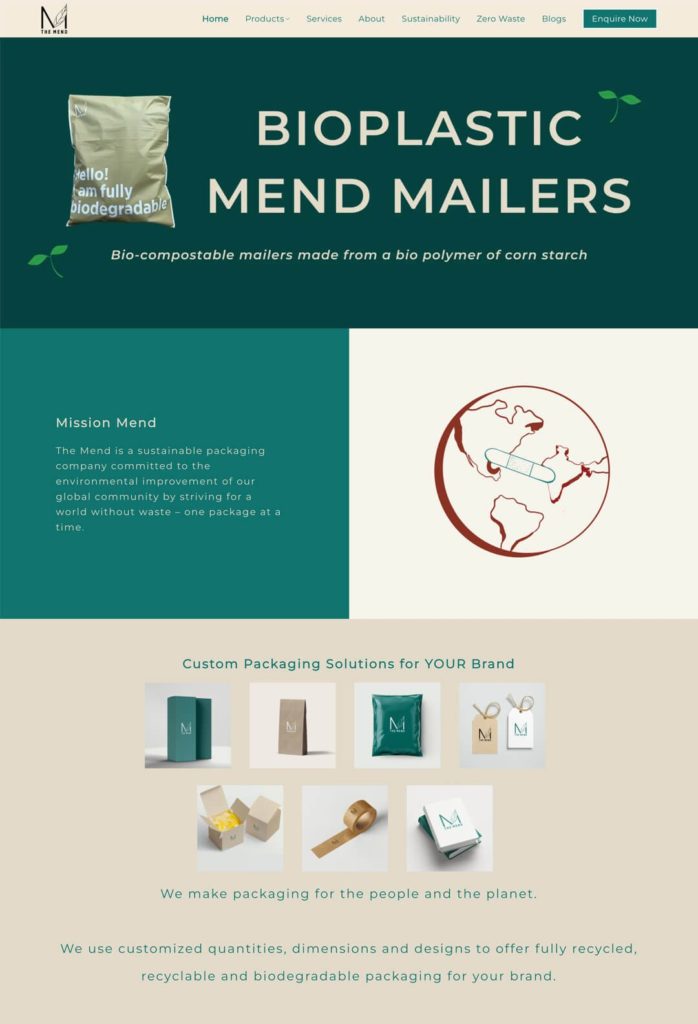India’s Urbanites Are Embracing Sustainability
The increase of environmentally-conscious urbanites in India’s bustling cities are met with opportunities and challenges.
Urban India, according to data from the World Bank, is home to 35% of the country’s population with nearly 482 million people living in urban centers. Yet a 2020 report by the National Commission on Population predicts a 57% increase in the size of the urban population by 2036. Industrialization and the growth of urban centers has negative implications for the environment, resulting in food security and transportation pressures, air pollution, increases in carbon emissions, and higher generation and discharging of waste. This in turn contributes to environmental degradation and loss of biodiversity, signaling the need for urban populations to live more sustainably.
Cultivating a sustainable consciousness in India
Sustainable living is defined by the choices we make to reduce both our individual and collective environmental impacts. The changes one makes for a sustainable and environmentally conscious lifestyle can offset climate change and reduce one’s overall carbon footprint. In an urban population as big as India’s, consumers and citizens embracing a sustainable lifestyle could significantly impact their communities and their immediate environments.
What is the urban Indian’s understanding when it comes to living more sustainably? A study on sustainable consumer behavior had promising results. It found that Indians from larger cities and urban areas (Tier 1 and Tier 2 cities) were more aware of sustainability than their rural counterparts. It also revealed that Indian millennials are more aware of the environmental impact of their consumption behavior.
According to a survey of 19,000 people by YouGov across 17 countries, nearly 81% of urban Indians find it important that brands and businesses take steps to minimize their impact on the environment; 50% said they respond to advertisements that speak to global issues such as the environment, and sustainability. Furthermore, a study by Jain and Kaur in 2008, indicates that women are more likely than men to be aware of the consequences their consumption habits have on the environment. The study also found that mothers-to-be tend towards purchasing more eco-friendly and sustainable products.
This awareness around sustainable living is driving both consumer and producer behavior in certain key markets, including organic food, beauty and lifestyle products and everyday goods. While people are looking to buy products that are sustainable for the environment, they are also choosing products that are sustainable for their health and lifestyle.
Organic food and everyday products such as dairy
During an episode of A Sublime Life, a podcast exploring consumer choices that promote cleaner and greener lifestyles, Vaibhav Nagory, the COO of Greener, a plant-based cafe in Delhi, presented his view that veganism has increasingly become a way of life in India and not just in other countries such as the USA. He observes that people have embraced it as it not only leads to better health and holistic beauty but has a positive impact on the environment with consumers eating what is often locally-sourced.
Chitale Group, a dairy conglomerate, also offered their views on the podcast, highlighting that businesses such as theirs are moving towards helping urban Indians make more sustainable everyday choices. Before the pandemic, the group partnered with collectors to gather empty plastic milk containers from people in Pune and worked with the government to reuse the material in innovative ways such as building roads. The group is also in the process of creating a recyclable and reasonably-priced solution that works for dairy packaging, so that the last mile customer does not have to bear the cost of being environmentally sustainable.

Beauty and lifestyle
Urban India is driving companies to think sustainably about various products that are part of a person’s everyday lifestyle. The Switch Fix produces and sells a range of sustainable beauty and hygiene products, catering to a population of sustainably-aware consumers. From products that are made from water-less ingredients to vegan, cruelty free, and non-toxic products, their range helps consumers reduce their carbon footprint in small but impactful ways.
According to The Switch Fix’s Abhishek Kumar, people in Delhi are now asking questions to ascertain how sustainable things are across all aspects of their life. How much water was used to create a piece of clothing? What is the impact of an automobile on the air quality in a city? How much electricity is consumed by household appliances and what effect does that have on the environment? These questions have made brands become more transparent and accountable for their products or services.
Sustainability across the value chain
While food businesses and lifestyle companies are gearing to meet the needs of environmentally conscious populations, they are being supported by companies that are rethinking an important aspect of how a product can be more sustainable: plastics and packaging.
A case in point is The Mend Packaging, a company that helps brands create sustainable packaging. In their effort to innovate and rethink recycling and eliminating plastics from the value chain, they have come up with forms of packaging that are 100% biodegradable, thereby not causing harm to the soil or contaminating groundwater resources. They are also using the latest technology to create a 100% marine biodegradable water soluble pill, which will eliminate the need for using plastic lines or laminates in plastic cups.

Bottlenecks and challenges of waste management
Consumers are being supported by companies in their attempt to live sustainably but an important question when analyzing the overall impact of these sustainable choices is whether sustainability is observed across all stakeholders in the value chain, especially in the processing of waste. Large quantities of waste, tellingly, is the by-product of growing urbanization and a huge cause of environmental degradation surrounding urban areas. While people want to help with recycling and waste sorting by taking small steps to do so, urban India’s story around government support and integration is in need of further improvement.
Many companies have the means to reuse and recycle but struggle with the front-end collection of this waste, a responsibility that often lies with urban local bodies of cities.
These entities find themselves struggling with operational capacity (transportation, treatment and disposal of waste), lack of funds, and other institutional challenges in order to effectively manage the growing problem of urban waste. Research found that when it comes to door-to door collection of waste, only 11 states have achieved full collection capacity, and only 2 states process more than 90% of their waste, while 13 states process more than 60% and Delhi, a main urban center, processes only 55% of its waste, as of January 2020.
Evolving conversations and the path ahead
Despite the several challenges and data suggesting limited success stories, there are examples of urban centers that are moving towards greater sustainability. In 2019-2020, the Swachh Survekshan (SS) initiative, under The Star Rating Protocol for Garbage Free Cities (a framework that grades cities across 24 different categories of solid waste management) awarded 5 stars to 6 urban centers in India: Ambikapur, Rajkot, Surat, Mysuru, Indore and Navi Mumbai.
Policymakers are slowly also supporting businesses, who with the right kind of technology, investment and leaders, can bring down prices, improve scalability and access to a sustainable lifestyle. India’s ambitious Plastics Pact is one such supportive initiative, which, backed by the government, aims to bring together businesses, governments and NGOs to reduce, reuse, and recycle plastics in their value chain. Launched by the Confederation of Indian Industry and developed in partnership with WRAP and WWF India, the pact has 22 large and medium-scale businesses and organizations as its members as of 2022. The goal of the initiative is to eliminate the use of plastic in the country by 2023 through four key targets.
As a result of a growing awareness among urban Indians, every participant and stakeholder, from the manufacturer to the consumer, is asking questions on whether the products they sell, buy and use are sustainable. Kantar’s Asia Sustainability Foundational Study 2021 covered 9 countries in the region, including India, and found that 58% of the respondents were concerned about water, air and environmental pollution because nearly all of them had been personally affected by it. They also found that 53% of Asians have stopped buying products and services that negatively impact the environment.
While this conversation has gained traction, a close analysis of age-old practices in India reveals sustainability was always very close to an everyday Indian’s life. From the farmer using natural ways of growing ingredients, to older generations conserving food, water and recycling waste through natural methods in the household, India has employed sustainability at its core without being qualified as such by international standards. The new complexities of a globalized world and changing urban centers has meant these age-old sustainable practices have evolved to generate newer ones, supported by companies that cater to this population.
Concentrated impact across an entire circulatory system towards sustainability requires the initiative to be taken by everyday citizens in combination with companies moving in the direction of sustainable products and manufacturing processes. It also requires dedicated support from policymakers, local bodies and the government. Better urban development, management of resources and the establishment of effective institutions that monitor and manage the effects of urbanization on the environment are some steps that can aid urban India’s path towards embracing a sustainable lifestyle across several aspects that are currently in need of better environment consciousness; use of plastics, waste management and water conservation, to name a few.
